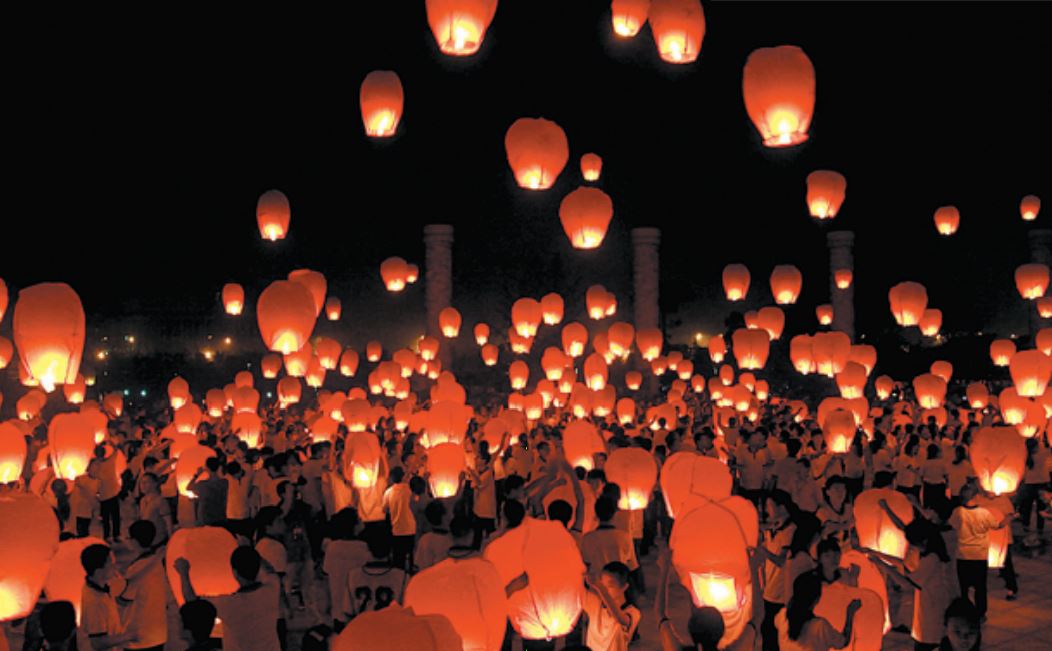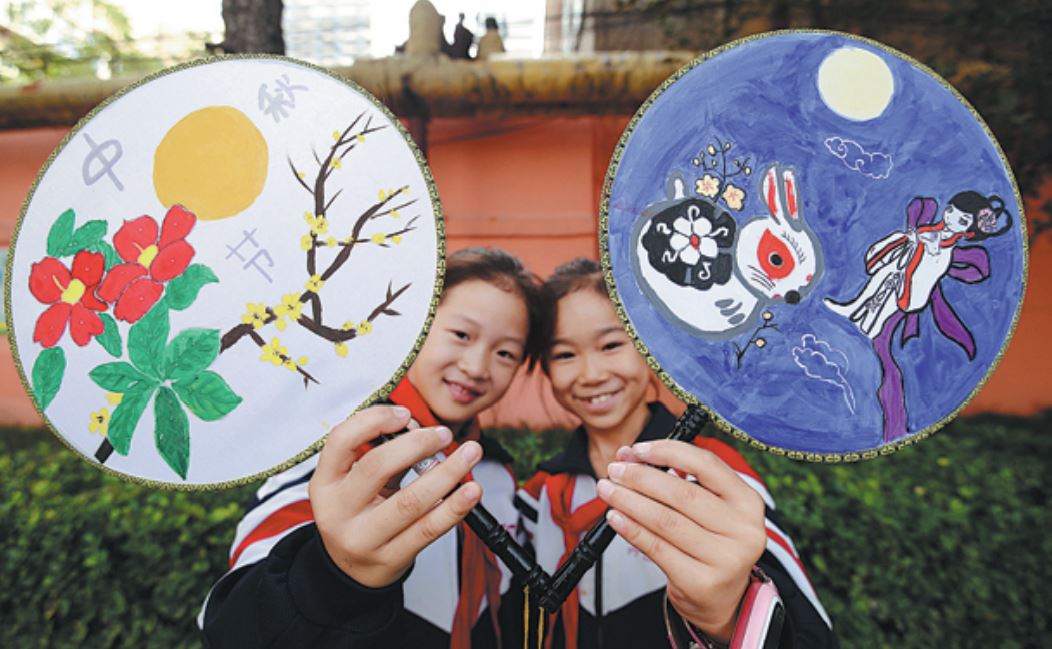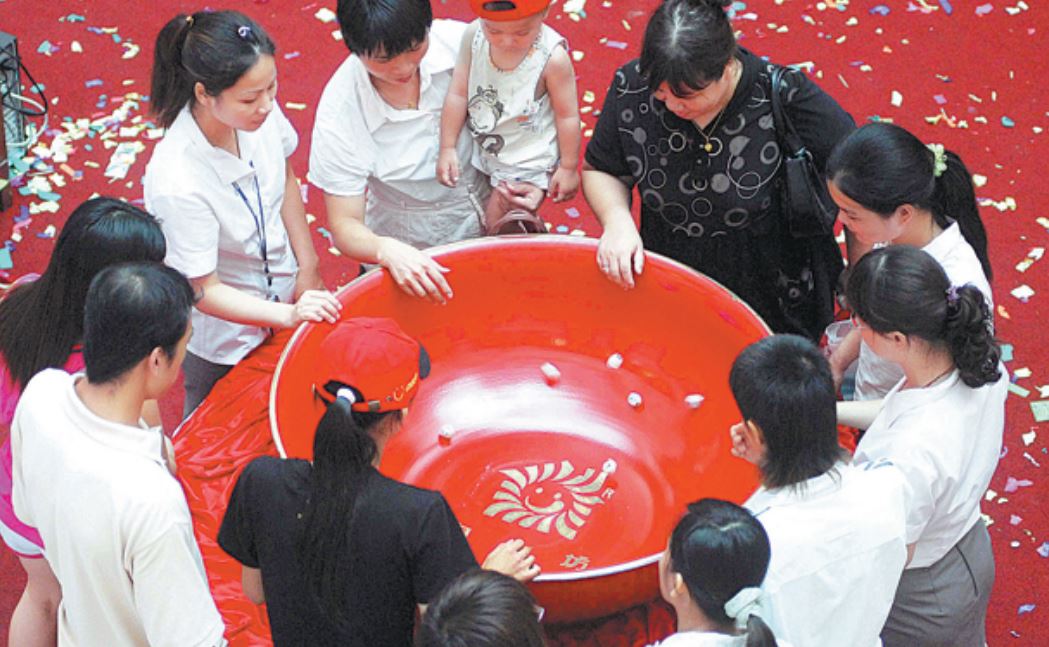Mid-Autumn Recollections
As languid summer nights draw to a close, our gaze is once again drawn to Earth's heavenly companion and the customs she inspires
When was the last time that you really paid attention to the moon? In cities such as Beijing, high-rise buildings and skyscrapers often hide it from view and city lights dim the moonlight to background illumination. Even when we do glimpse the moon, we rarely give it a second thought, now that it no longer serves as a guiding light as it did for humans for millennia.
But there is one occasion in China when the moon does regain its former wonder. Every year, almost all Chinese will stop whatever they are doing and take a moment to look at the moon.
Mid-Autumn Festival, held on the 15th day of the eighth lunar month, falls on Tuesday this year. It is a day dedicated to the orbiting satellite of the Earth, which in olden times was viewed as a natural guardian constantly and peacefully watching over all living beings. Nowadays, the festival is a chance to marvel at the moon and indulge in reverie.
Guo Wenbin, an award-winning author and a scholar of traditional culture, recalls that during his childhood in Northwest China's Ningxia Hui autonomous region, prior to Mid-Autumn Festival, the adults used to keep newly harvested produce away from the eager mouths of children, just so the divine presence of the moon could "have the first taste".
When the full moon rises, he says the family would place a table in the yard, and lay out grain, fruits and, last but not least, mooncakes, the traditional pastry in the shape of the full moon often gifted to families as an expression of goodwill.
His parents would burn an incense stick, recite words of gratitude to the moon and nature in general for blessing them with a year of nourishment and harvest, and then the family would kowtow to the moon together in reverence.

Lanterns light up the sky during the festival in Yichun city, Jiangxi province. Zou Haibin/For China Daily
The family would then sit quietly in the yard and admire the moon. When the incense burned out, the ritual ended with children kowtowing to the moon another three times. The offerings would then be distributed among family members.
He says that such moon-worshipping rituals are still observed in his hometown and similar practices take place yearly throughout China.
Guo himself continues to maintain this tradition with his family. Even though they live in an apartment, he sets up a table on the balcony every Mid-Autumn Festival, and teaches his son the traditional customs.
"Chinese people follow the lunisolar calendar, which pays attention to the influence of both the sun and the moon on human activities and culture," Guo says of the Chinese veneration of the moon.
"Like the sun, the moon rises and sets daily. But unlike the sun, its appearance changes in the various lunar phases. In ancient times, the moon offered people unparalleled scope for their imaginations. And its waxing and waning made it an ideal object for ancient Chinese to idolize and venerate its aesthetic appeal."
The moon-worshipping rituals are recorded in The Book of Rites compiled in the Western Han Dynasty (206 BC-AD 24), which stipulates that the ancient emperors offer sacrifices to the sun in spring, and to the moon in autumn.
According to Zhang Bo, deputy secretary-general of China Folklore Society, it was in the Tang Dynasty (618-907) that Mid-Autumn Festival evolved into the form that we know today. The round shape of a full moon is evocative of the wholeness of a family and it became a custom for families to gather together for the festival.

Students show their painted fans featuring the Jade Rabbit and the moon deity, two icons of Mid-Autumn Festival, in Handan, Hebei province. Hao Qunying/For China Daily
In the Tang and the Song (960-1279) dynasties, there emerged a lot of classic poems about Mid-Autumn Festival, most of which have close connections with the moon, describing the beauty of the moonlit night, and the poets expressing their own sentiments on viewing the moon, usually the melancholy of being separated from their loved ones.
A poem written by Song Dynasty poet Su Shi to his brother during the festival reflects on the changing appearance of the moon and the vagaries of human existence, as translated by Xu Yuanchong:"Men have sorrow and joy; they part or meet again; The moon is bright or dim and she may wax or wane."
Perhaps because the moon gives the visual illusion that it follows the nighttime wayfarers wherever they go, in East China's Jiangsu province, the moon-watching ritual is imaginatively called zouyueliang, meaning to "walk the moon".
There are records of this custom dating back to the Qing Dynasty (1644-1911), which refers to people, especially women who at the time could not be seen in public as often as they would probably like, taking a stroll on the night of Mid-Autumn Festival dressed in their best to enjoy the moonlit scenes of evening.
As the area boasts canal towns with intricate waterways and river-based settlements, much of the moon-watching takes place beside the water, where the moon in the night sky and its reflections in the water add an otherworldly charm to the experience.
Ye Zhengting, president of Suzhou Folk Literature and Art Association, says that it has become a time-honored festival custom for the Suzhou locals to walk on the street alongside the Shantang River, a popular destination since ancient times. Should they get tired, they'll board a boat and enjoy a live performance of singing or acrobatics.
The journeys are not without purpose, because by foot or by boat, they all have the same destination-the Huqiu Opera Fair, where professionals and dilettantes alike gather at Huqiu (Tiger Hill) to perform Kunqu Opera, the local opera style.
For centuries, Kunqu Opera has been a popular form of entertainment for the Suzhou locals. Chinese scholar Yu Qiuyu has compared it to ancient Greek theater, where people would gather to applaud the performances of the tragedians.
Since late last century, lovers of Kunqu Opera have been working to revive the Huqiu Opera Fair, and with the support of local cultural and art organizations, the opera fair has once again become a must-attend part of the city's mid-autumn celebrations.
Apart from folk opera performances, the fair, which spans the holiday, now hosts diverse cultural events, including live orchestral music, an intangible cultural heritage market and outdoor cinemas suited to people of all ages.
"Traditional culture should be injected with new energy. Some of the performances at the fair are now entirely modern, which I think is perfectly acceptable. Traditional culture should advance with the times and suit the tastes of contemporary people," Ye says.
Among all the mid-autumn traditions with the core value of spending time with one's own family, one particular local custom does not need to transform at all to maintain its appeal. It still effortlessly steals the hearts of people young or old.

The game of bobing is popular in Xiamen, Fujian province. Liu Tao/For China Daily
In Xiamen, Fujian province, the family reunions at Mid-Autumn Festival are spiced up with bobing, literally "mooncake gambling". It might come across as unfathomable that not only is this form of "gambling" legal and without age restriction, it was also recognized as a national intangible cultural heritage in 2008.
Bobing is in fact a traditional board game played with six dice and a bowl, whereby the participants roll the dice in the bowl to predict their fortunes in the upcoming year based on the combinations they get.
The set of gaming equipment usually comes with packages of mooncakes in different sizes. The dice combinations vary, but it takes one single look for a Xiamen local to recognize the ranks of the dice combinations. The higher the rank of a combination, the better the luck and the bigger mooncake the person gets.
Legend has it that the game was invented by general Zheng Chenggong (1624-1662), who, while stationed in Xiamen, came up with this game to relieve the homesickness and boost the morale of his troops during Mid-Autumn Festival.
It is so prevalent a custom that around the holiday, the city is often imbued with the rattling, ringing sound of dice being shaken in a bowl. Not only families play it as a pastime, but also companies and supermarkets set up the game for their employees and customers. The mooncakes are sometimes replaced by bigger prizes to add a bit of zing.

Waterways are lit up by lanterns in Suzhou, Jiangsu province. Wang Jiankang/For China Daily
However well-accepted the game might be, it is still centered on family reunions, and this core message, dearly valued by Chinese people, makes Mid-Autumn Festival one of the most important holidays of the year, perhaps second only to Spring Festival.
For those who cannot reunite with their family, perhaps a few moments of solitary moon-watching will bring solace.
The mid-autumn moon, hazily bright, perfectly round yet dappled with indiscernible shadows, forever watches over people with seeming luminous benevolence.
As Su Shi's poem ends,"There has been nothing perfect since the olden days ... Though miles apart, we'll share the beauty she displays."
